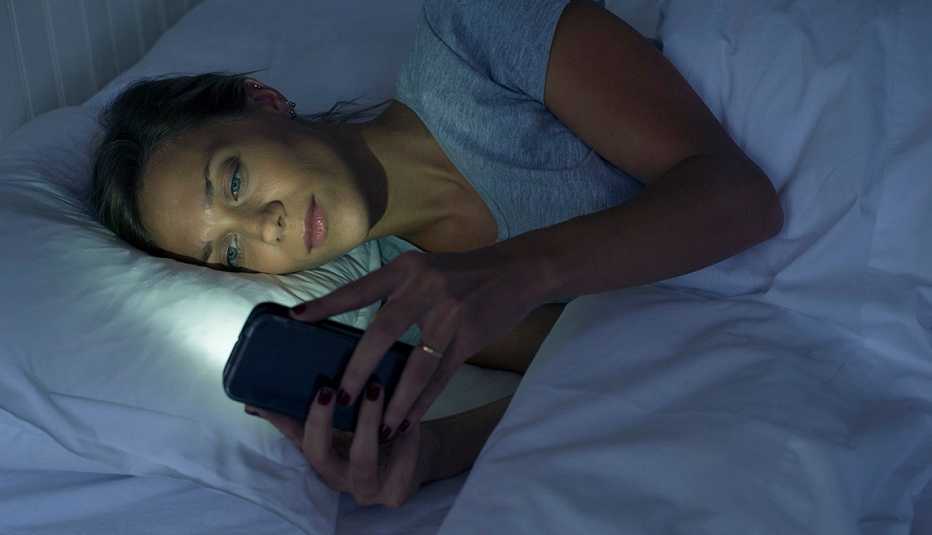AARP Hearing Center
Checking emails on your smartphone. Watching a movie on your tablet. Devouring the latest best seller on your e-reader. Many of us spend hours a day looking at our devices’ screens, which emit blue light: the high-energy, short–wavelength light that's also emitted by the sun.
Some say it's bad for the eyes. Indeed, a quick scan of the web pulls up unsettling reports that the blue light from screens can cause several scary eye conditions — even blindness. And in May the French Agency for Food, Environmental and Occupational Health & Safety published a study suggesting that continued exposure to blue light can “accelerate the aging of retinal tissue” and increase the risk of age-related macular degeneration.
So just how concerned should we be? Not very, says Karl Citek, a professor of optometry at Oregon's Pacific University College of Optometry and a member of the American Optometric Association Commission on Ophthalmic Standards. “The amount of blue light emitted by your smartphone, tablet, computer screen or similar device is nowhere close to the intensity necessary to cause retinal damage,” Citek explains. “I saw one blog post which read ‘My computer is making me blind!’ No it's not. It's potentially so remote.”
Citek notes that the blue light from the sun is far more potent than what's emitted by tech devices, adding, “under normal viewing conditions, people have not gone blind from being outside."
Super-intense sources of blue light, such as tactical flashlights and some powerful LED car headlights, can be harmful, says Mariana Figueiro, director of the Lighting Research Center at Rensselaer Polytechnic Institute in Troy, New York, but you would have to look directly into the light for a long period to cause damage. What's more, “Typically, we have a natural aversion to that,” Figueiro observes. “The light is so bright that we'll squint or look away, so we don't look at that source long enough for it to be harmful.”
Part of the reason for concern about tech devices is that people start to notice eye discomfort and fatigue after staring at screens for a long time, says Rahul Khurana, an ophthalmologist and vitreoretinal surgeon in Northern California and spokesperson for the American Academy of Ophthalmology. “So they think there's some damage going on. Oh, my God! I'm exposed to all this blue light. Now I'm having eye problems. The reality is, they're experiencing eyestrain.”






































































More on health
Do You Need 'Computer' Glasses for Tired Eyes?
What to do (or not to do) about digital eyestrainThe 10 Best Superfoods for Your Eyes
Protect your vision with these nutritious (and delicious) foods
Shingles of the Eye Cases Are on the Rise
Painful virus that can cause vision loss is affecting more older adults